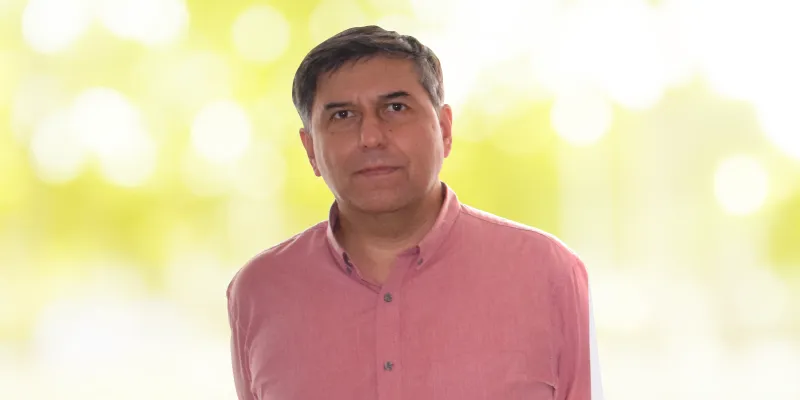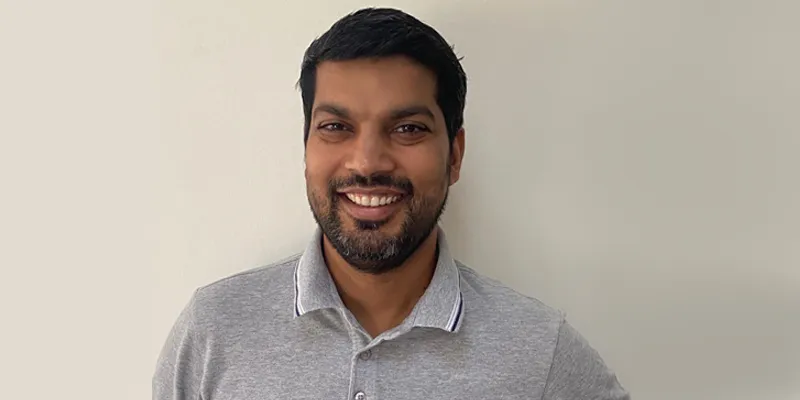10 Indian brands that turned challenges into opportunities by pivoting at the face of the COVID-19 pandemic
To overcome the economic challenges posed by the COVID-19 pandemic in 2020, these 10 Indian brands pivoted their business models to survive and succeed during the unprecedented times.
When the going gets tough, the tough get going.
The year 2020 has been an odd year for businesses. However, the COVID-19 pandemic, a nationwide lockdown, and social distancing measures did not diminish the confidence in entrepreneurs to think out of the box.
Moreover, India’s digital progression was accelerated during the pandemic. According to a Morgan Stanley report, by 2027, India's 670 million internet users will rise to 914 million.
From creating an online marketplace, selling on ecommerce sites, introducing contactless payments, to adopting software solutions to run the business — Indian MSMEs completely transformed in the last nine months.
Here are 10 Indian brands that pivoted to other businesses and persisted during the lockdown, transforming challenges into opportunities.
Suparshva Swabs

The rising number of COVID-19 cases during the nationwide lockdown led to a higher demand for polyester swabs for testing. However, till March 2020, polyester swabs were not manufactured in India and were imported from China or the US. With the global demand for the swabs on the rise, it became more difficult and expensive to source them for domestic use.
At the same time, Delhi-based Suparshva Swabs stepped forward to pivot its manufacturing business of personal hygiene products such as cotton buds, cotton balls, and special swabs under the Tulips brand.
The family business converted its 100 percent cotton processing lines at its Ghaziabad factory to produce polyester-spun swabs on automatic production lines — all in just ten days.
“We are the first Indian company to develop special polyester-spun swabs for COVID-19 testing. We started making two million polyester swabs a week, and grew it to five million a week towards the end of May,” says Rahul Jain, second-generation entrepreneur and partner at Suparshva Swabs.
The company claims it alone can cater to the entire nation’s requirements of polyester swabs for COVID-19 testing.
IHCL

Puneet Chattwal, MD and CEO, IHCL
The lockdown period saw a significant increase in the time spent by people on their mobile devices, and food being an essential commodity was readily available at the doorstep.
IHCL and its brands, especially Qmin — one of IHCL’s initiatives — had been actively engaging with its global audiences on digital and social media channels.
Qmin was launched in July 2020 to bring its repertoire of culinary experiences and dishes from its restaurants to customers' homes in Mumbai, Delhi, Kolkata, Bengaluru, Chennai, and more.
Speaking to SMBStory, Puneet Chhatwal, MD and CEO, IHCL, says,
“The app was designed and developed by IHCL in collaboration with Tata Digital within a short time-span of six weeks. It gives guests a differentiated delivery experience through a seamless interface that allows them to personalise their orders, curate menus, and track deliveries real-time.”
As a startup, IHCL has taken these challenges in its stride and considered the crisis as an opportunity. To address difficulties whenever they arose, IHCL put its customers first and focussed on resilience and long-term sustainability.
10by10

Rajesh Kumar Das, Founder, 10by10
At the beginning of the nationwide lockdown, with hospitals running out of beds and a shortage of ventilators, Indian entrepreneurs came forward unifying to contribute their bit in fighting against the threatful circumstances, thereby diversifying their product portfolio.
Seeing the shortage of beds at quarantine facilities, Bengaluru-based 10by10 — which is into building sustainable and smart solutions that benefit both its customers and the environment — came up with ISO.POD — an instant isolation room solution that acts as a safety envelope protecting people against further infection.
Founded by Rajesh Kumar Das, ISO.POD comes in the size of 8’x7’x10’, making it compact, modular, and easy to duplicate and scale. Inspired by the Do It Yourself (DIY) methodology, ISO.POD is portable and can sustain wear and tear.
It has an aluminium pipe structure and is made of upcycled plastic polyester fabric, making it sustainable, economical, and an industrial solution at just Rs 15,000. As the ISO.POD acts like an airtight enclosure to every patient, it helps in curbing the spread of COVID-19.
Shree Shakti Enterprises

In 2014, Rahul Bajaj joined his family business of dealing in essential kitchenware Shree Shakti Enterprises.
Between 2010 and 2019, he opened three new manufacturing units, expanded the company’s workforce to 500, and increased its turnover from Rs 10 crore to Rs 140 crore, growing at an average of 40 percent yearly.
But come 2020, and Shree Shakti had to close all its manufacturing units as India went into a lockdown in late March. Consumption fell drastically, and sales of non-essential items hit south.
Almost compelled to innovate in order to survive, the company started building products that could come in handy in the present crisis. From sensor-based sanitiser dispensers to hands-free hand wash systems, and automatic foot sanitisers, Shree Shakti ventured into uncharted territory.
It all started with a video Rahul stumbled upon on social media, which showed a hands-free hand wash station that could be operated through a foot pedal. He realised that it was something that could be built in his plant and even installed there for the safety and sanitisation of workers.
Shree Shakti received large orders from various industries, public, and government institutions, including Hero Moto Corp, Wipro, Mohalla Clinics, the Ministry of Home Affairs, CRPF, BSF, police stations, and political parties. This allowed the company to avoid job cuts and gross Rs 1.15 crore in sales through the lockdown.
Bioline India

Neetta Goel, Founder, Bioline India
Hand sanitisers were always essential to use. However, they were falling under the ‘sleeping product’ category until the deadly virus hit India. And, the same sleepy product saw a multifold growth in its demand.
What is surprising to see is that sanitisation and personal hygiene — which should have been a part of our daily habits — were waiting for a crisis of this magnitude to happen.
The story of Bioline India’s ULV Bio Fogger is seen to be similar. Based in Indore, Bioline India was founded by Neeta and her late husband Rajeev Goel in 2001 to manufacture and supply affordable medical equipment to masses.
Neetta Goel, Founder of Bioline India, narrates a story with ULV Bio Fogger, a product that was developed by her company in 2005. She says, “We have been supplying them to the local hospitals for sterilisation. However, it wasn’t into demand until coronavirus hit us badly.”
“The COVID-19 skyrocketed the demand of this once slow-moving product so much so that the team is now working 24x7 to meet the demand,” she adds.
People are realising the importance of sterilisation in their daily lives, and suddenly, Bioline India finds itself playing a bigger role in the daily battle against bacteria with its ULV Bio Fogger.
FabIndia

William Bissell, Chairman, FabIndia
The nationwide lockdown came with a warning for FabIndia and its 250 retail stores. The popular ethnic wear brand — built over 60 years — shut its stores in March. However, it was quick to notice that the government was allowing the sales of essential items and hygiene products during the lockdown, and decided to ramp up its organic foods production.
During an interaction as part of the ‘Money Matters with Shradha Sharma’ series, FabIndia Chairman William Bissell said,
“Teamwork and collaboration with the state government in Uttar Pradesh were critical to scale up production under our Organic India food brand. Before the lockdown, food and hygiene products contributed two to three percent of our business. With the increased production, it quickly grew to 15 to 20 percent of our business.”
Homescape

Many real estate companies and aspiring entrepreneurs in India entered the coworking spaces industry following the market trend that showcased immense growth potential. However, with social distancing and working from home being the norm during the pandemic, the sector was hit badly.
However, Workshaala is one such company that emerged from the COVID-19 crisis stronger.
Founded in 2013 by Manoj Khandelwal, the Bengaluru-based co-working space came up with an initiative called ‘Homescape’ to provide furniture to people working from home.
As most people started working from home amidst the pandemic, it provided tables, chairs, and desks to individuals, thereby giving them the required comfort and ease while working.
“The ideation of Homescape happened when we saw people facing issues while setting up offices at home. This was affecting their productivity enormously. Since we foresaw that work from home would become the norm in the near future, we decided to provide furniture to these people,” Manoj says.
Hula Global

Karan Bose, Founder, Hula Global
Founded in 2018, Noida-based Hula Global was doing well until the coronavirus pandemic hit India. In an effort to tide through the hard times, Founder Karan Bose diversified its business into manufacturing PPE kits, N95 masks, face shields, etc., to meet the rising demand for such products in the country.
Hula Global is an innovative apparel manufacturing company and uses modular manufacturing technology that helps eliminate various middlemen and provides apparel at the lowest possible price.
“After the pandemic hit us, the supply chain of our garments category was badly affected as exports were shutdown. We couldn’t foresee the demand for the garment in the near future. Coronavirus came as a major threat to our business, and to not lose the battle, we mulled over the idea of pivoting into PPE kits,” Karan says.
There are very few PPE manufacturers in India who have the expertise to manufacture N95s, coveralls, surgical gowns, and face shields — all under one roof — and we thought we can do well in the sector with unchanged operational chain, he adds.
The company invested significantly to expand its manufacturing capacity from 10,000 coveralls a month to 10 lakh coveralls a month. From zero N95 masks in March, it is now producing 80,00,000 masks monthly.
Koko Boost

Bengaluru-based energy bars company Koko Boost and its founder Thejaswi S faced many obstacles at the beginning of the pandemic.
Distribution, too, became a major challenge for the small manufacturer of millet and moringa energy bars. Owing to the small size of her business, Thejaswi found out that distributors were disinterested in retailing her products.
With the COVID-19 pandemic turning people’s attention towards essential goods, Koko Boost’s energy bar business took a hit. As customers were more interested in immunity-boosting products, Thejaswi decided to pivot and launched a brand of immunity-boosting powders made from moringa.
“We ventured into making a new and innovative range of powders, including garam masala powder, spice powder, and karam podi. They are all made from moringa, and come under a new brand name Santrupt,” she says.
Thejaswi started using Instagram and WhatsApp to promote and sell her new products and is now managing to keep Koko Boost afloat.
Gulshan Homz

Gulshan Nagpal, Founder and MD, GUlshan homz
Gulshan Nagpal started Gulshan Homz in Delhi in 1989 and was into constructing independent homes in East Delhi. Years later, his focus shifted to building premium multiple housing projects in the Delhi-NCR region.
Today, the business has carved out a niche for itself in high-end luxury residential projects, she claims. In FY20, it sold 522 units across its three projects — Gulshan Ikebana, Gulshan Botnia, and Gulshan Bellina — in Noida.
Nonetheless, the three-decade-old real estate firm was not spared by COVID-19. The pandemic made it go back to the drawing board and devise effective strategies to handle the situation. To sell its spaces during these bleak times, Gulshan Homz is reaching out to customers digitally and giving them virtual tours of the sites.
The company’s director Yukti Nagpal believes it is the only way of staying connected with the existing and target customers amid the current COVID-19 crisis.
“Digitisation and virtual tours have been started by realtors, and this has helped them reach their target audience and close substantial sales even during the lockdown,” she says.
Edited by Suman Singh







